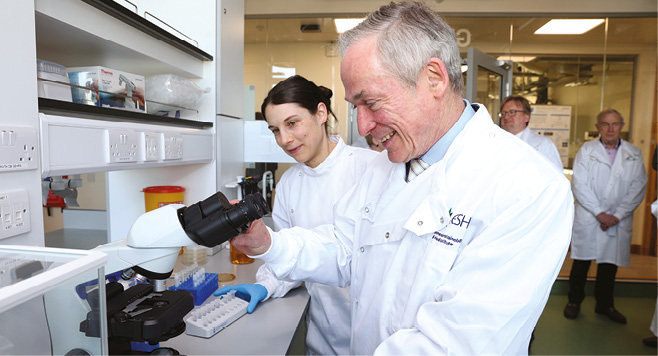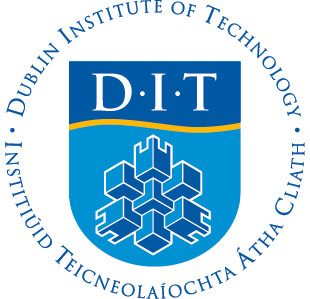University challenge


Preparing graduates for complex professional roles in a changing technological world is an increasingly significant challenge for higher education institutions. Brian Norton, President, Dublin Institute of Technology writes.
Sometimes new aspects of our rapidly changing world seem to creep up on us, and are surprisingly easily embraced as part of our daily lives. Technological developments have accelerated the pace of change and for this generation, a quiet revolution is already playing out. Our challenge as a society is to be highly educated, curious and questioning so that we can ensure that the forms, scope, pervasiveness and potential of advancing technologies – and their consequences – are harnessed for the good of society as a whole.
These complex technologies are already at the heart of so many of our daily activities. Today, for example, the applications of artificial intelligence, machine learning and data analytics are critical to the many social media tools and internet-based innovations that we already use without question. Emerging combinations of robotics, machine vision, wireless communication and augmented reality are set to fundamentally change many aspects of the professional and service sectors – both public and private. In the future, such innovation will also be reflected in many other ways, from how we construct our homes; to what modes of transport we develop; and what entertainment we create.
Exactly how, and precisely when, these changes will happen we cannot know. What we do know is that their inevitability requires an education system that enables everyone to make – to a far greater extent than ever before – critical and informed judgements in their adoption and use. We must learn how to best use them and improve them, but we must also be conscious that for technology to serve an inclusive and participatory society, we should be in control of them, rather than allowing technology to control our behaviour and our values.
Tasks that have been heretofore entirely reliant on the use of very narrow, trained skillsets will, in the very near future, no longer be carried out by humans but will be taken on by machines using algorithms of various forms. We can already recognise that humans will only undertake tasks that have indeterminate contexts, requiring creativity and design thinking. Our fundamental abilities to discover new knowledge that relies on sophisticated insight and harnesses human empathy will absolutely come to the fore.

This scenario is real, current and exciting. It has critical implications for education at all levels but perhaps most particularly, it is a challenge for higher education. It requires the development of different educational experiences to meet the needs of different students so they can acquire knowledge and develop expertise to reach their full potential and to contribute to this rapidly changing society. In Ireland, the newly forming technological universities will offer an education that is founded in an appreciation of practice but strongly informed by social, economic and research contexts. This is the true foundation on which graduates can base their ability to continue to learn and to innovate through their careers.
It is critical that the technological universities have parity of esteem with the very fine universities that already exist, but it is also imperative that they retain a very distinctive function, both in their focus on the application of knowledge as well as in the manner in which they enable diversity. This includes diversity of opportunity of access as well as of levels of programmes. It is key to enabling individual students to fulfil their ambitions, whether that is in meeting their first careers goals, in changing or enhancing their career paths, or in seeking to be more active citizens, participating in a meaningful way in a democratic society.
Creating a technological university for Dublin
Dublin Institute of Technology (DIT) has a long history of embracing emerging and evolving technologies and preparing each successive generation of graduates – from apprentices to PhDs – to embark on their professional careers, armed with an ability to bring their technological knowledge to bear on a wide range of challenges. Now DIT is joining forces with the Institutes of Technology in Tallaght and Blanchardstown to create a new technological university in the Greater Dublin Region. Embedded both in the city centre and in the fastest-growing population areas of the Dublin region, it will enable people to enter their university at the point of easiest access for them – whether they are first-time undergraduate students or are returning to continue their education at a higher level; SME’s based in the Dublin region or multi-nationals seeking to expand their workforce; entrepreneurs seeking to establish their new enterprise or innovators with exciting new technologies to license.
“Our fundamental abilities to discover new knowledge that relies on sophisticated insight and harnesses human empathy will absolutely come to the fore.”
The development of the DIT campus at Grangegorman will bring 10,000 students of a wide range of disciplines to one location for the first time by early 2020 and over the following three years almost all DIT activities will be based on the new campus. With full service campuses already embedded in their communities in Tallaght and Blanchardstown, the three physical centres of the new technological university will have innovation and research at their heart, actively engaged with partners in industry, enterprise and community organisations; nurturing talent and supporting regional and national development. A shared digital campus will provide a common technological platform and systems, enhancing communication and accessibility for students, staff, industry and community.
Like the traditional university sector, and other technological university consortia in other parts of Ireland, the technological university for Dublin – the name of which has yet to be decided – will play a significant role in attracting students to Ireland, enhancing the range of choice available to them. It will provide important research opportunities, as well as opportunities for industry and enterprise to engage with higher education across a broad range of activity.
The success of the new institution will be of vital importance to its students and graduates, its staff and its partners. But this is also a national enterprise and it is vital for Ireland that it succeeds. It is therefore absolutely critical that support for the concept of a technological university is unequivocal; that there is a real understanding of what it stands for; that it complements existing institutions; and occupies a unique space in our higher education eco-system.
Let us be open-minded: let us learn from those countries where technological universities have added so much value – educationally, culturally and economically – and let us believe in the strategy for the future of higher education in Ireland.






